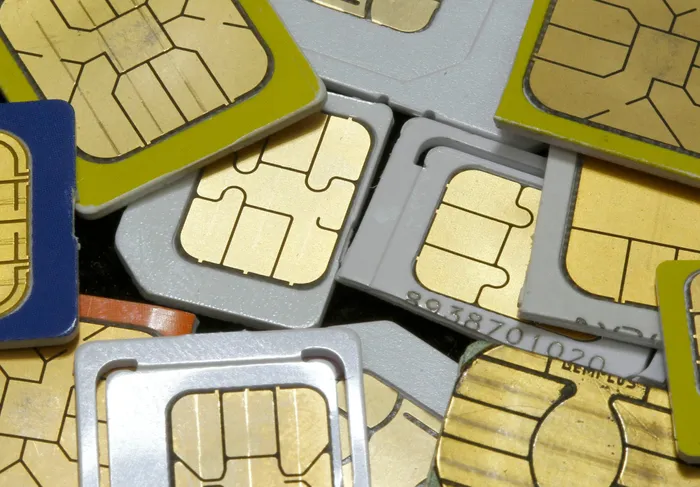SIM card fraud remains SA’s biggest headache

Unregistered SIM cards: A growing threat to South Africa's safety and economy
Image: Reuters
SINCE 2020, there were only 27 investigations concerning crime committed using SIM card fraud, and out of those investigations, only one led to an arrest, with zero convictions.
This is according to a parliamentary response by Police Minister Senzo Mchunu to questions about the number of investigations, arrests and referrals to the National Prosecuting Authority (NPA) for prosecution in offences related to the Regulation of Interception of Communications and Provision of Communication-Related Information Act (RICA), carried out in each of the past five years.
According to the minister, there were four investigations in 2020/21, eight in 2021/22, three for 2022/23, eight for 2023/24 and four over the 2024/25 period.
There was only one arrest in 2023/24 but the case was withdrawn, and no referrals to the NPA.
The NPA said the statement about no convictions “must not lose sight of the fact that since 2018, the NPA concluded 69 trials on RICA offences” which included several convictions.
In 2021, there were two direct imprisonment sentences, there were six in 2022, and three in 2023. In 2024, there were eight direct imprisonment sentences for RICA offences.
“The challenge is the bulk supply of non-RICA'd SIM cards. For the NPA to successfully prosecute these cases, we need a human being before court to charge. The identity of such offenders is unknown to the State therefore case dockets are opened but investigations become difficult to make a breakthrough,” said NPA spokesperson Mthunzi Mhaga.
Independent telecommunications consultant, Farhad Khan said every year, unregistered SIM cards are implicated in thousands of cases of criminal activity, which shows that “the Regulation of Interception of Communications and Provision of Communication-Related Information Act (RICA) in its current form is a failed piece of legislation and should be reviewed with urgency”.
“Crimes linked to unregistered SIMS, including extortion, kidnapping, murder and financial fraud, pose significant risks to public safety and jeopardises South Africa’s efforts to exit the Financial Action Task Force (FATF) grey list. Every year, thousands of fraud, extortion, kidnapping, and murder cases involve criminals utilising unregistered SIM cards. It is therefore unthinkable that only 27 investigations were conducted over a five-year period, resulting in only one arrest (that was subsequently withdrawn) and zero convictions. Police statistics indicate that 62% of extortion cases involve unregistered SIM cards, highlighting a direct correlation between inadequate regulation and criminal activity. 58% of all mobile banking app fraud incidents involved SIM swaps. The absence of RICA arrests suggests minimal deterrence, emboldening criminal activity," he said.
According to Khan, the fragmented regulatory oversight of RICA, with responsibilities divided among departments, was part of the problem.
“Rectifying this regulatory shortfall necessitates a multi-pronged approach. Implementing secure tamper-proof SIM packaging and rigorous point-of-sale verification protocols, coupled with a stringent distributor and reseller accountability framework, would strengthen the system. Integrating biometric verification, requiring coordinated inter-departmental action, would further enhance security.”
Kwena Moloto, spokesperson to the Minister of Communications and Digital Technologies said the minister was aware of the problem.
“The RICA Act empowers the Minister of Communications and Digital Technologies to issue technical directives that guide how telecoms operators configure their networks to support lawful interception. These directives ensure that when authorised by a court, law enforcement can securely access communication data needed to investigate and prosecute crimes. Government is actively reviewing the RICA Act to address ongoing challenges with SIM card registration. Minister Malatsi is committed to doing everything within the Department’s mandate to support a coordinated government response. While criminal investigations and prosecutions under RICA remain the responsibility of justice and law enforcement authorities, (the department) will continue playing its part to ensure the communications infrastructure is secure,” said Moloto.
Cape Times
Related Topics: